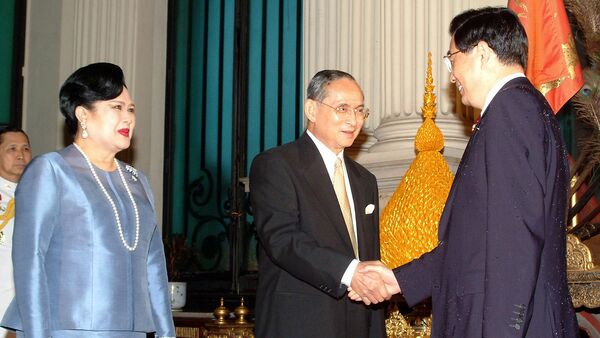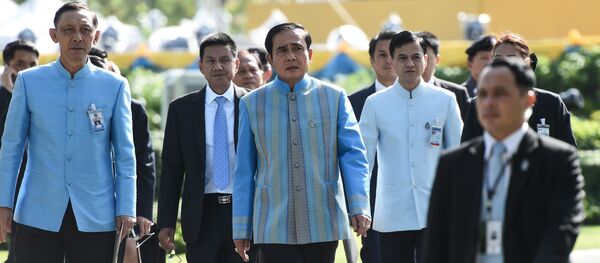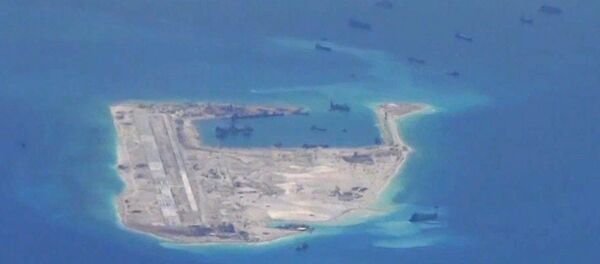He was echoed by Chinese Foreign Ministry spokesman Geng Shuang, who also expressed condolences and praised King Bhumibol Adulyadej's contribution to the development of Sino-Thai ties.
The South China Morning Post recalled in this vein that Thailand's support for China is of great importance to Beijing amid ongoing tensions over the South China Sea.
Unlike the Philippines, Vietnam and other neighboring countries, Thailand is not involved in any territorial disputes with China.

In contrast to Indonesia and Vietnam, Thailand sees no tensions over the large ethnic Chinese community which is fully assimilated into Thai society and serves as a bridge for strengthening relations between the two countries, according to the newspaper.
In an interview with Sputnik, Asia-Pacific expert Shen Shishun did not rule out that the Thai King's death may cause a temporary loss of stability and balance in the political life of the country.
"Given the current political system in Thailand, shaping the country's future policy may prove a tricky task. In addition, the King's death may again pit the opposition red shirts and yellow shirts against each other, even though the overall situation in the country is relatively stable," he said.
Since the establishment of diplomatic ties in 1975, the two countries have been developing friendly and mutually beneficial relations, according to Shishun.
"I think that regardless of who comes to power in Thailand in the future, the country's relations with China will always be of importance to Bangkok, which is almost sure to benefit from such cooperation," he said.
Alexey Fenenko, a political analyst from Moscow State University, suggested that the next few years will see a sort of struggle for Thailand between China and the United States.
"Now that Washington is trying to contain China, particularly with the help of Vietnam, Beijing will certainly look for an alternative in Thailand in order to break through this perimeter of the American environment. Washington in turn will seek to compensate for the cooling of the US-Philippine ties by developing relations with Thailand," Fenenko said.
Shishun, for his part, said that as far as Thailand is concerned, it will focus on developing ties with both Beijing and Washington.
He predicted that Thailand will continue to maintain its alliance with the United States, a policy that will come amid Bangkok's efforts to strengthen friendly ties with Beijing.
"China and Thailand are located on the same continent and according to the Chinese proverb, 'a close neighbor is better than a distant relative.' At the same time, Thailand will certainly not refuse to cooperate with the United States if it considers that it will meet its public interests," Shistun said.
Fenenko in turn noted that it is unclear whether Thailand's top brass will now demonstrate unity and call for building a closer relationship with China at the expense of US interests.
"I suspect that a serious pro-American segment has already emerged in Thailand to avenge the failure of coups under Shinawatra. I think that they could try to change the policy of Thailand, playing on the fear of China," he said.
Apparently, the White House will try to launch a dialogue with Thailand, while China will do its best to prevent the signing of the US-Thai agreement on arm supplies and the expansion of bilateral military partnership.





